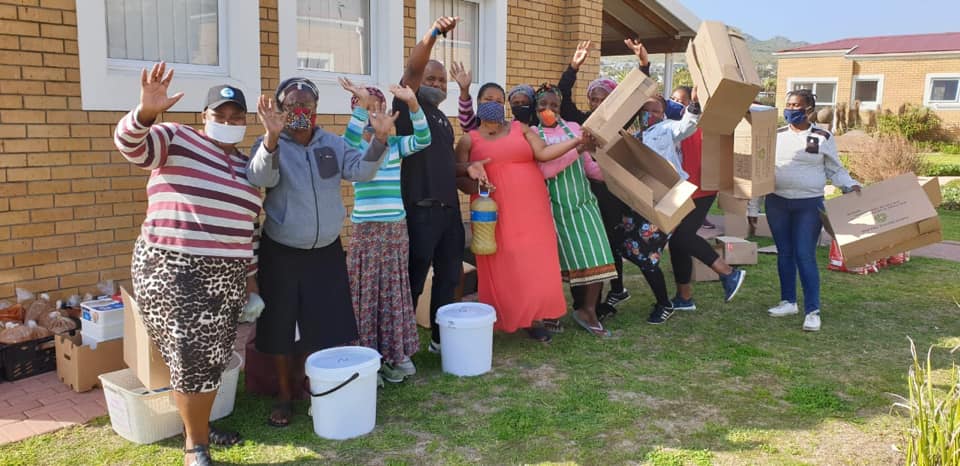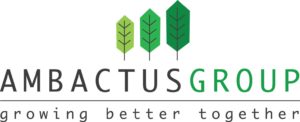
Ambactus Group is proud to support Living Hope, a Non-Profit Organization whose vision is to reach people for Christ, Bringing Hope and Breaking the Despair of poverty and disease. Living Hope undertakes community development through educational, social, income generation, and health-related programs; and plays a vital role in the prevention, care, and treatment of people infected and affected by HIV/AIDS and other chronic illnesses.
Who We Are
Living Hope is a uniquely positioned Christian ministry in Cape Town and East London, South Africa that was established in the year 2000 through the grassroots efforts of a local church. In the 21 years since its establishment, Living Hope has grown and matured from a fledgling local church ministry to a complex, multi-faceted organization that employs over 200 staff, mobilizes hundreds of volunteers per year, and now reaches over 100,000 clients annually. We employ locals to serve locals through responsive programs in under-resourced, under-served communities. With a proven track record of over 20 years of effective and sustainable achievements across 8 geographic locations, we remain at the forefront of cutting edge interventions in Breaking the Despair of poverty and disease and are widely accredited.
Our Vision
We seek to reach people for Christ, Bringing Hope and Breaking the Despair of poverty and disease.
Our Mission
- To spread the good news of Jesus Christ in a life-changing way and to encourage people to follow Him.
- To play a vital role in the prevention, care, treatment, and support of people infected and affected by HIV and AIDS and other chronic illnesses.
- To undertake community development, inter alia through education, social and health-related programs.
Our History
In January 1987, Pastor John Thomas began his work as Senior Pastor of Fish Hoek Baptist Church; now called King of Kings Baptist Church. In his time at the church, John became burdened by a group of impoverished Xhosa people who were living illegally as squatters in a nearby area. John went to the church leadership with a very difficult question: “Should we defy the separation laws of the Apartheid-era government and reach out to these people who had been forced into a destitute situation offering friendship and assistance?”
The church leadership made the courageous decision to step out and partner with this informal community, together with organizing worship services and other basic ministries. Knowing that the community would need the leadership of a Xhosa-speaking pastor, John called on Pastor Phillip Mokson to join these efforts. Pastor Mokson’s dedicated work laid a foundation for the many ministries that would be built years later.
In the early 1990s, the government made plans for a formalized township to be built for the squatters living illegally. This area was to be called Masiphumelele or Masi. The residents demanded their church be granted a prime central location within the new community and set their sights on a plot where the local primary school, the town hall, and the clinic would also be located. The residents said that the church needs to be in the center of their new area as a permanent reminder in history that there was only one church that stood with them in the dark days of apartheid and that it was also this church that helped them start the school and the clinic. Today the school, clinic, and church are all in the center of Masiphumelele as a testimony to history and the dark days of apartheid when only one church risked going ‘illegally’ into a very informal black area.
Fish Hoek Baptist purchased land in Masi in early 1993 and completed the church in 1994. The building was built by members of Fish Hoek Baptist Church. Pastor Mokson became an influential leader and the Masi Baptist Church became a cornerstone of the community over the years. Tragically, Pastor Mokson was murdered in the church by a deranged person in January 2007 – a tremendous loss for Masi Baptist and the people of the township.
Among the many problems this impoverished community faced were HIV and AIDS. It was through this horrible disease that God gave Pastor John what he described as “a wakeup call”. John heard a statistic that the HIV infection rate in Masi was 44% – that statistic turned out to be incorrect (the infection rate at that time was closer to 17%), but it was the shock of the inflated statistic that moved John into compassionate action. In November 1999, Pastor John brought together a knowledgeable medical team including Professor Barbara Roberston (a Nursing Professor) and they began HIV and AIDS outreach work in Masi through informal health care and support. As their efforts grew, the need for a Centre, separate from the church, became urgent. In July 2000, with the help of a generous friend, Pastor John was able to acquire a property in the Capri area opposite Masi.
By September 2000, a Trust had been registered, called the Fish Hoek Baptist Church Community Trust, with an overriding emphasis on spreading the good news of Jesus Christ in a life-changing way: the prevention, care, and treatment of HIV and AIDS; and community development through inter alia education and health-related programs.
This newly acquired Capri property had sufficient ground to allow for future expansion and provided a Centre from which to grow, and thus began the work of Living Hope. From humble beginnings, Living Hope’s programs grew rapidly into the 51 various programs running today as parts of the primary ministries of Health Care, Substance Abuse Recovery, Life Skills, Family Strengthening and Agricultural Training. Each of these programs strives to uphold the Mission and Vision laid out by the original Trust, to reach people for Christ, Bringing Hope, and Breaking the Despair of poverty and disease.
Visit Living Hope’s website and blog to learn more about their work.
http://www.livinghope.co.za/
https://ambactusgroup.com/causes/
